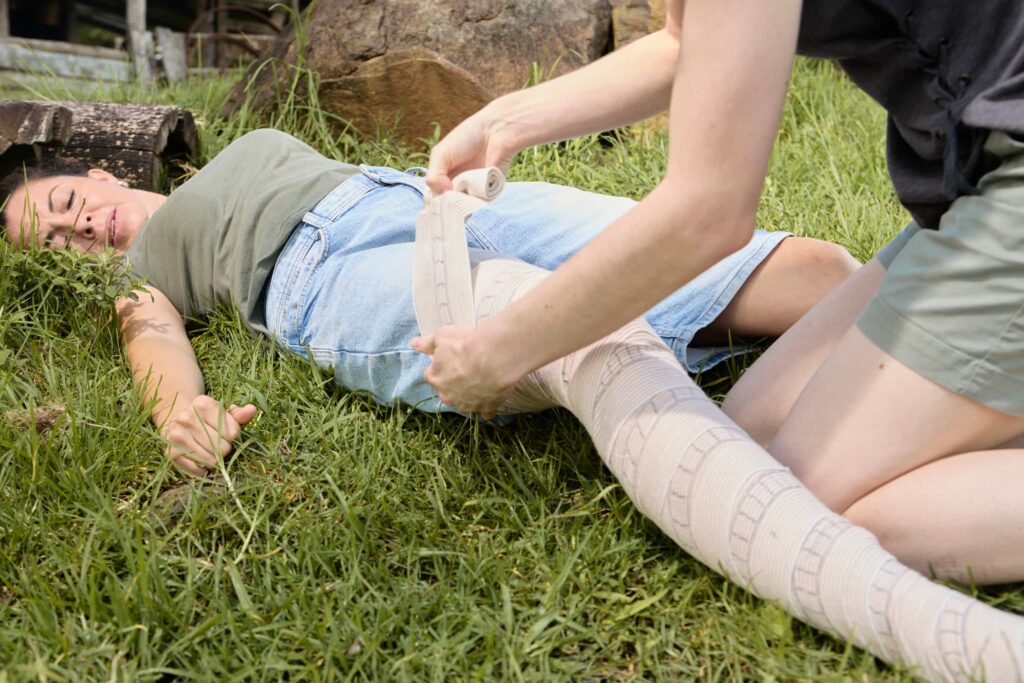
Survival starts on the ground, in the first minutes after an incident. It’s about knowing what to do while we’re on our way. Our emergency trauma training gives you practical skills to manage life-threatening events like car crashes, farming accidents, stroke and snake bites. Arming yourself with the vital knowledge is the best protection you can offer your loved ones and community.
LifeFlight connects all Queenslanders to the best possible medical care. In the first critical minutes after an emergency, that care will come from you. That’s why we offer our free First Minutes Matter program to all Queenslanders. Anyone can learn the skills to offer help after an accident, snakebite, or even a stroke.
When it comes to survival, we all have a part to play. Join us in keeping your loved ones and communities safe, by arming yourself with this vital knowledge. Register for a free, expert-led First Minutes Matter workshop in your area, or take our online course at home.
For a more hands-on learning experience, we also offer in-person workshops. Guided by experienced instructors, gain practical knowledge and skills that could make all the difference in a critical moment.
First Minutes Matter is available as a self-paced online course, designed to help you learn critical emergency response skills. While it only takes a few hours, the knowledge you gain last a life-time. Get started today.
LifeFlight is here for all Queenslanders, no matter the distance. But even with our critical care doctors flying to you as fast as they can, the skilled assistance you provide on the ground could possibly be the difference between life and death. Early intervention can also help reduce pain and hospital recovery time.
Drawing from decades of experience in emergency medicine, our doctors, paramedics and nurses will empower you to make a difference in the moment.
Our online course can take approximately 3-4 hours to complete, but you can start then exit and come back as required with your log in, so you don’t have to do it all at once!
Nothing! This course is suitable for everyone, even if you have no prior knowledge. Just register for your preferred method and get started.
First Minutes Matter is not a registered First Aid Course. You will, however, receive a certification of participation upon successful completion of the course.
Unfortunately not. Please bring a snack as we’re not always confident that there is food available to purchase near each workshop’s location.
Check your workshop registration in your account. Workshops can vary from 5.5 hours to two 3-hour sessions.
Just yourself, and anything you’d usually leave the house with!
Zach’s right leg was amputated when he came off a motorcycle in 2017. Dozens of Toowoomba and Brisbane medical professionals kept Zach Nightingale alive, but it was the quick thinking of the first two people by his side that saved him.
“I think everyone should do a course like First Minutes Matter. It’s free. The only investment people need to make is their time. And I would have died at the scene if people didn’t know how to help me,” Zach Nightingale, past patient and First Minutes Matter Ambassador.
Undertaking courses like First Minutes Matter ensures you and your community have the confidence and the skills to be able to look after loved ones in critical situations, like Zach. Knowing what to do in those essential first minutes and having the support of trained individuals made all the difference on Zach's outcome and, ultimately, saved his life.